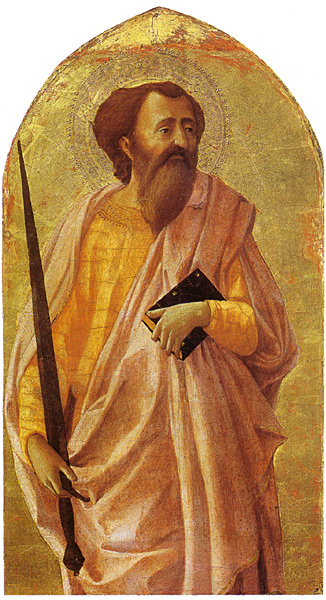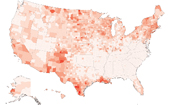That question came to mind as I was reading what seems like yet another round of talk about an Anglican “schism”-I put the word in quotes because many don’t describe it that way, or want to cast what is happening in terms of a Reformation or something more prophetic-sounding. The talk regards a meeting of conservative Anglican leaders in Jerusalem ahead of the decennial Lambeth Conference in England of all the word’s Anglical bishops. (Well, all except a certain gay bishop and a schismatic African.) Here is The New York Times take. The Tablet cites the conservative bishops as calling this “a second Reformation,” while over at the America blog, Austen Ivereigh prefers “realignment.”
Yada yada yada. Which is actually my point: Perhaps it is the result of having covered this story for too long, and having attended too many Episcopal Church conferences on this and other topics (gays, homosexuals, lesbians) that promised a definitive answer of one sort or another, only to have the issue put out for further study, or a later deadline. And there is much to be said for that.
But as both a historian and journalist I can’t help but ask, Is this really “it” this time? Is this really a schism, a split, a reformation? Will all those apocalyptic ledes I wrote years ago finally be true? Above all, how can we know when something is historic? I recall reading that Europeans at the turn of the second millennium had a Y1K panic of sorts. But was there a widespread historical consciousness of a “Great Schism” in 1054? Was Oct. 31, 1517 a momentous date only decades, perhaps centuries, later? Apropos of the coming holiday, I believe July 2 was actually supposed to be the memorable Day of Independence. But the Founding Fathers, though we now attribute omniscience to them, might have been aghast at the idea of being called Revolutionaries. Did Sassoon et al know it was the Great War? It surely wasn’t World War I back then. And on and on.
How possible is it to recognize something as historic when you are in the moment itself? And how much does our modern history-conditioned consciousness shape the way we view the present events? In this age of infotainment and commentary characterized solely by the use of the superlative, is everything historic? Or has the very concept been so overused it means nothing? And thus is it possible to know, until centuries later, the import of the events in, in this case, Jerusalem and Canterbury?
I posed these questions over at dotCommonweal as well, and that prompted many interesting responses.
More from Beliefnet and our partners

